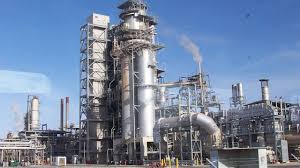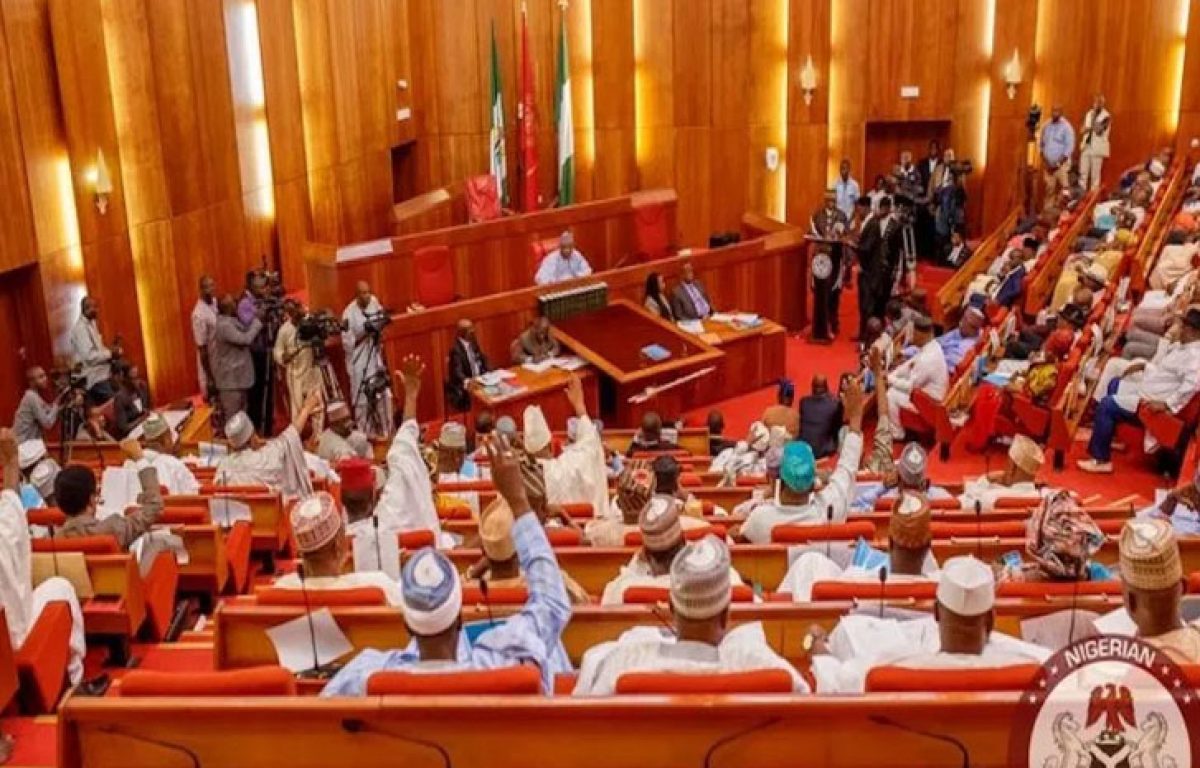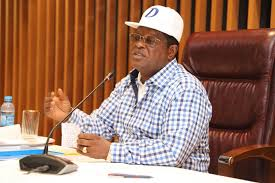Business
Dangote Refinery: A National Triumph Over Personal Ambition

By Best Agbese
The Dangote Refinery and Petrochemical Company, located in Lekki, a suburb of Lagos, is seven times the size of Victoria Island, another high-end area in Lagos State. The refinery boasts of more than 350 concrete bridges, a port for oil vessels, and approximately 5,000 neatly built apartments for its staff. The refinery also incorporates the largest granulated urea fertilizer complex in Africa and sits on 500 hectares of land.
Considering the gigantic scale of the newest refinery in the world, it would be apt to submit that Alhaji Aliko Dangote, the founder and CEO of the Dangote Group, is the epitome of courage, resilience, and patriotism. His readiness to contribute to the overall development and growth of the nation’s economy is evident in his numerous impactful interventions at critical moments in our nationhood.
Sincerely speaking, it takes great courage for an individual to envision a world-class gigantic project like the Dangote Refinery. In his case, Aliko Dangote not only visualized the possibility of constructing one of the world’s largest refinery plants but also saw it through to realization. For a businessman and entrepreneur to venture into such a capital-intensive project in an unpredictable business environment marked by policy flip-flops and unhealthy politicization is quite remarkable.
Only a patriotic investor who is deeply committed to the unity and economic growth of his country can attempt such a bold step. With this historic move in the oil sector, Aliko Dangote stands alone in the pantheon of patriotic business leaders in Nigeria.
One very notable fact is that the rising price of petroleum products in Nigeria has resulted in significant hardship, particularly for the average Nigerian. While the current hardship caused by the fuel subsidy removal, intended to address long-term economic challenges, has had a detrimental impact on many, the immediate effect of the subsidy removal policy has further exacerbated the wealth gap between the rich and the poor.
In the context of this harsh reality, one can conclude that the Dangote Refinery and Petrochemical Company represents a glimmer of hope for Nigerians. As one of the largest refineries in the world, located in Nigeria, the refinery has the potential to refine petroleum products locally, eliminating the need for costly imports that have reduced Nigeria to a “beggar nation” over the past decades.
Local production of Premium Motor Spirit (PMS) could reduce pricing, as there would be no need to factor in high landing costs associated with fuel importation. The Dangote Refinery, at full capacity, will process 650,000 barrels of crude oil daily, making it competitive with the United States’ largest refinery and over 50% bigger than the largest refinery in Europe.
Although the refinery is intended to refine domestically produced crude to bolster the heavily oil-dependent local economy, which has been marked by crises in recent times, it also can refine foreign crude. While the exit of Shell Exploration Company and other major international oil companies from the domestic market may pose challenges for the Dangote Refinery in terms of crude oil supplies and achieving its goal of changing the narrative in the nation’s oil sector, it is also important to acknowledge that the sheer scale of the Dangote Refinery will nonetheless turn Nigeria into an “oil market juggernaut”.
According to a recent New York Times report, although the refinery has yet to debut in the domestic and international market space, the Dangote Refinery is already making waves in the global market and has affected major market indicators and determinants. Aliko Dangote, the billionaire Nigerian businessman who spearheaded the refinery’s construction and development, is well aware of the challenges facing the nation’s oil and gas sector.
He has repeatedly reiterated his commitment to driving the troubled sector towards efficiency and reliability. His mission is to make a positive impact on the capacity and fortunes of local refineries across the country. To many, including cynics who doubted that an individual could successfully build one of the world’s largest refineries, the knowledge of the refinery’s impact on the global energy index must have generated a highly positive response.
It is noteworthy that the Nigerian economy, which has experienced slow growth over the last 20 years, is set to witness a dramatic turnaround in the coming months. The positive impact of the Dangote Refinery on the nation’s economy will translate to a better standard of living for every Nigerian. It will reflect directly on Nigeria’s foreign reserve, reducing pressure on the Naira and stabilizing commodity and fuel prices.
Certainly, the Dangote Refinery and Petrochemical Company is a game-changer for Nigeria, meeting domestic needs and producing a surplus for export. Already, the refinery has resumed production of high-quality Premium Motor Spirit (PMS), which is set to enter the domestic market. Aviation fuel and other products are expected to be rolled out into both domestic and international markets within September.
Candidly, Aliko Dangote has put many naysayers to shame. They were wondering how possible it would be for an individual to accomplish what a country or a continent could not achieve. In a nutshell, the Dangote Refinery and Petrochemical Company symbolizes not only the strength and potential of Nigeria’s industry but also the dedication, patriotism, and vision of one of Nigeria’s most esteemed business leaders, Alhaji Dr. Aliko Dangote.
Therefore, it is succinctly true to admit with all sense of patriotism that although Aliko Dangote is not a saint, he has given Nigerians something to be proud of as a country. The Dangote Refinery and Petrochemical Company may become what Toyota is to Japan and what Citroen is to France – a brand and a source of pride.
Agbese is an oil and gas expert based in Dundee, United Kingdom.
Business
Senate Committee Commends Tinubu on Launch of National Halal Economy Strategy to Tap $7.7trn Global Market*

The Senate Committee on Finance has commended President Bola Ahmed Tinubu for launching Nigeria’s National Halal Economy Strategy, describing it as a bold and strategic move to position the country within the lucrative global halal market, estimated at $7.7 trillion.
In a statement signed by its Chairman, the committee praised the initiative as timely and aligned with international best practices. Several countries—including the United Kingdom, Canada, Australia, Malaysia, Indonesia, Saudi Arabia, the United Arab Emirates, Turkey, Brazil, Thailand, and Singapore—have successfully used halal frameworks to boost manufacturing, agricultural exports, financial markets, and foreign investment.
The committee highlighted Nigeria’s strong advantages for success in this space, including its vast agricultural resources, large domestic market, youthful population, growing manufacturing sector, and expanding services industry.
It noted that the strategy fits seamlessly into the Tinubu administration’s broader economic reforms, such as boosting non-oil revenue, diversifying exports, creating jobs, supporting small and medium enterprises (SMEs), and increasing foreign exchange earnings.
President Tinubu, represented by Vice President Kashim Shettima, officially unveiled the strategy on Thursday, February 6, 2026, at the Presidential Villa in Abuja.
The framework, developed in collaboration with Saudi Arabia’s Halal Products Development Company (HPDC) following a bilateral agreement signed in February 2025 at the Makkah Halal Forum, aims to enhance quality standards, certification processes, and competitiveness across sectors like food, pharmaceuticals, cosmetics, tourism, and ethical finance.
The committee described the strategy as inclusive, market-driven, and globally oriented, while fully respecting Nigeria’s diverse and pluralistic society.
It is projected to contribute significantly to the economy, with estimates suggesting it could add around $1.5 billion to Nigeria’s GDP by 2027 and unlock billions more in domestic value over the coming decade through expanded exports and investment.
The Senate Committee on Finance pledged its full legislative support, oversight, and cooperation to ensure smooth implementation, regulatory clarity, and long-term fiscal sustainability in the national interest.
“This decisive step reinforces Nigeria’s readiness to adopt proven international models, unlock new economic frontiers, and establish itself as a competitive player in the evolving global economy,” the statement concluded.
Business
Ex-Naval Chief Named in ₦100m Property Transaction Dispute
A property transaction dispute has emerged involving Zoe New Dawn Nigeria Limited and a former Chief of Naval Staff, following claims by the company’s chairman, Engr. Dr. Stephen Achema Akpa, that a ₦100 million payment made for land was not followed by a transfer of ownership.

According to Akpa, the payment was made in connection with a land transaction reportedly facilitated by the former naval chief. He alleged that despite documented payments, the land in question was neither transferred to the company nor was the money refunded.
Akpa said Zoe New Dawn Nigeria Limited possesses transaction records and related documents which, he claims, support its position in the dispute. He added that the company has initiated steps to seek redress through appropriate legal channels.
The matter has drawn attention due to the profile of the parties involved, particularly against the backdrop of recurring disputes linked to land ownership and property transactions in Nigeria’s real estate sector.
Industry observers note that unresolved land transactions remain a common source of litigation, often arising from disagreements over title documentation, intermediaries, and contractual obligations.
Zoe New Dawn Nigeria Limited stated that it intends to pursue the matter through lawful means to determine liability and recover any funds deemed outstanding.
As of press time, no official response had been issued by the former Chief of Naval Staff regarding the allegations. The dispute has not yet been confirmed as the subject of any court proceedings.
Business
Umahi Inspects Lekki Corridor’s 7th Axial Road Project, Expresses Confidence in CHEC

Minister of Works Senator Dave Umahi over the weekend inspected the progress of the 7th Axial Road project in the Lekki Corridor of Lagos.
The project, located behind the Dangote Refinery, is a crucial cargo handling route for the Lekki Deepwater Port and connects the Lekki Corridor with the Sagamu route.
The Minister expressed confidence in China Harbour Engineering Company Limited (CHEC), the project’s contractor, citing its successful delivery of the Lekki Deepwater Port and high-quality progress on the Makurdi-Enugu road reconstruction and expansion project. Umahi instructed that the roadbed filling work for Project LOT1 be completed by the end of April and directed the project team to accelerate resource input and tangible works to meet the deadline.
The 7th Axial Highway is expected to synergize with key infrastructure projects like the Coastal Road, Dangote Road, and Lekki Port, creating a comprehensive transportation hub model and boosting Nigeria’s port economy and industrial corridor. Umahi emphasized the need for environmental protection agencies to ensure efficient construction and steady progress while maintaining ecological safety.
A representative of CHEC who spoke during the inspection stated that the company would maintain a high level of resource input, implement the Minister’s directives, and coordinate safety, quality, and environmental protection to ensure the project’s timely and high-quality completion in other to unluck its port relief and regional economic benefits.
-

 Uncategorized5 years ago
Uncategorized5 years agoFG, states urged to harness flooding for ranching, others with technology – Agbaje
-

 Headlines10 years ago
Headlines10 years agoBreaking: EFCC seals Borno House of Assembly, as Hon members take to their heels
-

 News12 years ago
News12 years agoNigeria Security Operatives Stage Manhunt For Homosexual Perpetrator
-

 News9 years ago
News9 years agoHow 21-year-old Girl fled community over accusation of lesbianism
-

 News10 years ago
News10 years agoYobe Gov Moves Against Deputy
-

 Opinion7 years ago
Opinion7 years ago7 signs she has friend zoned you
-
Technology4 years ago
Online job placement company headhunts women
-

 Headlines10 years ago
Headlines10 years agoBorno Dep Gov Abducts Another Church Leader





